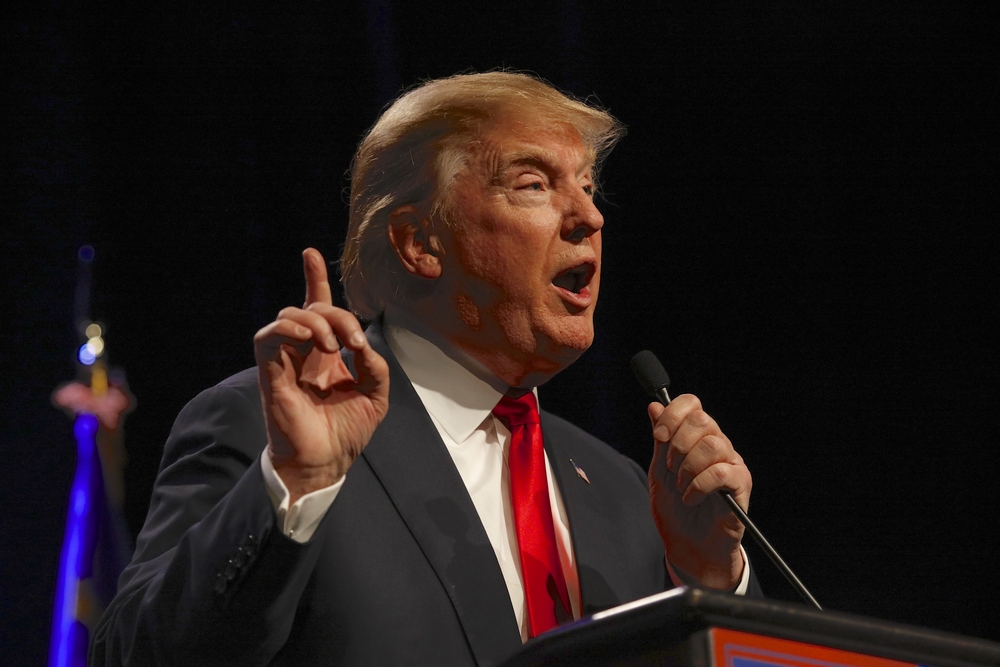
President Donald Trump released his first budget blueprint last week proposing steep cuts in different sections of the government in order to offset a big increase in military and defense spending.
One area targeted for drastic downsizing is agencies performing government-funded science research, including the National Institutes of Health (NIH).
The NIH could lose about $6 billion in federal funding through a reorganization of the major Institutes and Centers. Training programs for nurses and similar health professions may also be eliminated. However, the President’s proposal asks for additional money geared towards combating the opioid epidemic.
Congress will eventually decide which programs get cut and by how much, but this document raised concerns from a number of prominent medical research institutions.
We rounded up a few of their reactions below.
The American Society of Tropical Medicine and Hygiene:
“For NIH, the proposed 20 percent cut will have far-reaching and negative implications for our nations research portfolio and erode decades of progress. With infectious disease research already underfunded, the suggested budget cuts to the NIH will impact researchers and their jobs in universities across the country, diminish U.S. scientific global leadership and drag down U.S. scientific advancement. Without adequate funding, researchers cannot identify treatments and vaccines to curb and end diseases that affect us all.
Regarding the CDC, a newly proposed Federal Emergency Response Fund within the agency to rapidly respond to public health outbreaks such as Zika virus is welcome news. However, programs like this don’t.”
The American Society of Clinical Oncology:
“When we are on the cusp of tremendous advances in cancer care, the United States can’t turn back the clock on research that will benefit millions of Americans with life-threatening diseases and their families. Gutting the U.S. research infrastructure won’t make America First, but will decidedly place the United States behind other countries in scientific advances. Failure to nurture the historic U.S. investment in research places health outcomes, scientific leadership, and economic growth at risk.
ASCO urges Congress to reject the proposed cuts and increase federal support for NIH and the National Cancer Institute (NCI).”
American Association for Cancer Research:
“On behalf of the entire cancer research community, the American Association for Cancer Research (AACR) was shocked to learn that the Trump administration is proposing to cut $5.8 billion from the National Institutes of Health (NIH) budget in fiscal year (FY) 2018. At a time when extraordinary progress is being made against cancer and many other diseases, these draconian cuts would set research back for decades and also threaten the careers of an entire generation of young investigators working in labs and clinics all over the country who are committed to improving public health and saving lives.
Therefore, we call on members of Congress to stand firmly against this budget proposal. We urge them to maintain the momentum they initiated in FY 2016 when they provided the NIH with a $2 billion funding increase so as to ensure that medical research remains a national priority. Providing robust, sustained, and predictable annual funding increases for the NIH is absolutely required for the benefit of cancer patients nationwide. Since today’s budget proposal by the Trump administration will severely jeopardize the progress we are making in preventing, treating, and curing cancer, the proposal must be stopped in its tracks.”
The Infectious Disease Society of America:
“Strengthening America’s role as the world leader in biomedical research and investing in the next generation of scientists are longstanding bipartisan priorities that have led to unrivalled health and economic benefits for the country. While it is unclear exactly how the $5.8 billion proposed cut to NIH would be apportioned, IDSA strongly opposes any funding cut to infectious diseases research and has serious concerns about the proposed elimination of the Fogarty International Center which has made many contributions to infectious disease education and training. NIH has led essential research to develop new vaccines in response to outbreaks, new tools to address antimicrobial resistance, and breakthroughs in HIV. We urge the administration and Congress to protect this important progress. We also recognize that the Department of Defense leads significant infectious diseases research, given that our military can be exposed to a wide array of dangerous pathogens throughout the world. We call upon the administration and Congress to protect this important funding as well.”
American Society of Hematology:
“President Trump’s proposal to slash NIH’s FY2018 budget by nearly 20 percent is not what our country needs to remain healthy and competitive. As NIH is the largest funder of biomedical research, robust federal investment in and by the agency has led to innovative bench-to-beside discoveries that have resulted in paradigm-shifting advances in blood disease treatment and cures — from interventions that prevent stroke in young children with sickle cell disease to methods of engineering our own immune cells to attack tumors and beat cancer. In order to continue to make strides in conquering diseases, funding NIH at appropriate and sustainable levels must be a priority.”




